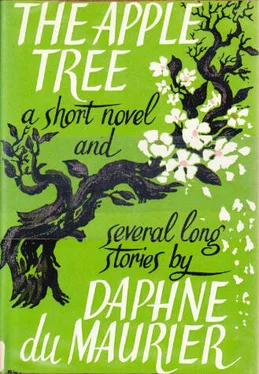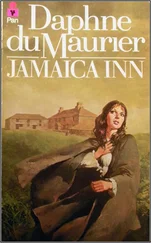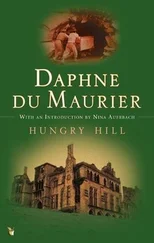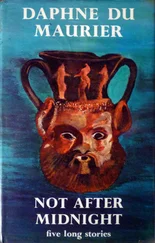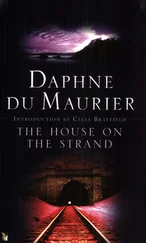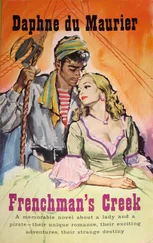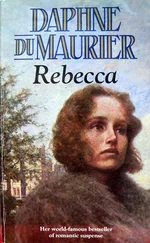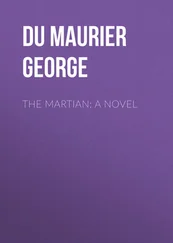Daphne du Maurier - The Apple Tree - a short novel & several long stories
Здесь есть возможность читать онлайн «Daphne du Maurier - The Apple Tree - a short novel & several long stories» весь текст электронной книги совершенно бесплатно (целиком полную версию без сокращений). В некоторых случаях можно слушать аудио, скачать через торрент в формате fb2 и присутствует краткое содержание. Жанр: Современная проза, Триллер, Социально-психологическая фантастика, на английском языке. Описание произведения, (предисловие) а так же отзывы посетителей доступны на портале библиотеки ЛибКат.
- Название:The Apple Tree: a short novel & several long stories
- Автор:
- Жанр:
- Год:неизвестен
- ISBN:нет данных
- Рейтинг книги:5 / 5. Голосов: 1
-
Избранное:Добавить в избранное
- Отзывы:
-
Ваша оценка:
- 100
- 1
- 2
- 3
- 4
- 5
The Apple Tree: a short novel & several long stories: краткое содержание, описание и аннотация
Предлагаем к чтению аннотацию, описание, краткое содержание или предисловие (зависит от того, что написал сам автор книги «The Apple Tree: a short novel & several long stories»). Если вы не нашли необходимую информацию о книге — напишите в комментариях, мы постараемся отыскать её.
The Apple Tree: a short novel & several long stories — читать онлайн бесплатно полную книгу (весь текст) целиком
Ниже представлен текст книги, разбитый по страницам. Система сохранения места последней прочитанной страницы, позволяет с удобством читать онлайн бесплатно книгу «The Apple Tree: a short novel & several long stories», без необходимости каждый раз заново искать на чём Вы остановились. Поставьте закладку, и сможете в любой момент перейти на страницу, на которой закончили чтение.
Интервал:
Закладка:
It was mercifully swift, the illness that took her from him. Influenza, followed by pneumonia, and she was dead within a week. He hardly knew how it happened, except that as usual she was overtired and caught a cold, and would not stay in bed. One evening, coming home by the late train from London, having sneaked into a cinema during the afternoon, finding release amongst the crowd of warm friendly people enjoying themselves — for it was a bitter December day — he found her bent over the furnace in the cellar, poking and thrusting at the lumps of coke.
She looked up at him, white with fatigue, her face drawn.
"Why, Midge, what on earth are you doing?" he said.
"It's the furnace," she said, "we've had trouble with it all day, it won't stay alight. We shall have to get the men to see it to-morrow. I really cannot manage this sort of thing myself."
There was a streak of coal dust on her cheek. She let the stubby poker fall on the cellar floor. She began to cough, and as she did so winced with pain.
"You ought to be in bed," he said, "I never heard of such nonsense. What the dickens does it matter about the furnace?"
"I thought you would be home early," she said, "and then you might have known how to deal with it. It's been bitter all day, I can't think what you found to do with yourself in London."
She climbed the cellar stairs slowly, her back bent, and when she reached the top she stood shivering and half closed her eyes.
"If you don't mind terribly," she said, "I'll get your supper right away, to have it done with. I don't want anything myself."
"To hell with my supper," he said, "I can forage for myself. You go up to bed. I'll bring you a hot drink."
"I tell you, I don't want anything," she said. "I can fill my hot waterbottle myself. I only ask one thing of you. And that is to remember to turn out the lights everywhere, before you come up." She turned into the hall, her shoulders sagging.
"Surely a glass of hot milk?" he began uncertainly, starting to take off his overcoat; and as he did so the torn half of the ten-and-sixpenny seat at the cinema fell from his pocket on to the floor. She saw it. She said nothing. She coughed again and began to drag herself upstairs.
The next morning her temperature was a hundred and three. The doctor came and said she had pneumonia. She asked if she might go to a private ward in the cottage hospital, because having a nurse in the house would make too much work. This was on the Tuesday morning. She went there right away, and they told him on the Friday evening that she was not likely to live through the night. He stood inside the room, after they told him, looking down at her in the high impersonal hospital bed, and his heart was wrung with pity, because surely they had given her too many pillows, she was propped too high, there could be no rest for her that way. He had brought some flowers, but there seemed no purpose now in giving them to the nurse to arrange, because Midge was too ill to look at them. In a sort of delicacy he put them on a table beside the screen, when the nurse was bending down to her.
"Is there anything she needs?" he said. "I mean, I can easily…" He did not finish the sentence, he left it in the air, hoping the nurse would understand his intention, that he was ready to go off in the car, drive somewhere, fetch what was required.
The nurse shook her head. "We will telephone you," she said, "if there is any change."
What possible change could there be, he wondered, as he found himself outside the hospital? The white pinched face upon the pillows would not alter now, it belonged to no one.
Midge died in the early hours of Saturday morning.
He was not a religious man, he had no profound belief in immortality, but when the funeral was over, and Midge was buried, it distressed him to think of her poor lonely body lying in that brand-new coffin with the brass handles: it seemed such a churlish thing to permit. Death should be different. It should be like bidding farewell to someone at a station before a long journey, but without the strain. There was something of indecency in this haste to bury underground the thing that but for ill-chance would be a living breathing person. In his distress he fancied he could hear Midge saying with a sigh, " Oh, well…" as they lowered the coffin into the open grave.
He hoped with fervour that after all there might be a future in some unseen Paradise and that poor Midge, unaware of what they were doing to her mortal remains, walked somewhere in green iields. But who with, he wondered? Her parents had died in India many years ago; she would not have much in common with them now if they met her at the gates of Heaven. He had a sudden picture of her waiting her turn in a queue, rather far back, as was always her fate in queues, with that large shopping bag of woven straw which she took everywhere, and on her face that patient martyred look. As she passed through the turnstile into Paradise she looked at him, reproachfully.
These pictures, of the coiiin and the queue, remained with him for about a week, fading a little day by day. Then he forgot her. Freedom was his, and the sunny empty house, the bright crisp winter. The routine he followed belonged to him alone. He never thought of Midge until the morning he looked out upon the apple tree.
Later that day he was taking a stroll round the garden, and he found himself drawn to the tree through curiosity. It had been stupid fancy after all. There was nothing singular about it. An apple tree like any other apple tree. He remembered then that it had always been a poorer tree than its fellows, was in fact more than half dead, and at one time there had been talk of chopping it down, but the talk came to nothing. Well, it would be something for him to do over the weekend. Axing a tree was healthy exercise, and apple wood smelt good. It would be a treat to have it burning on the fire.
Unfortunately wet weather set in for nearly a week after that day, and he was unable to accomplish the task he had set himself No sense in pottering out of doors this weather, and getting a chill into the bargain. He still noticed the tree from his bedroom window. It began to irritate him, humped there, straggling and thin, under the rain. The weather was not cold, and the rain that fell upon the garden was soft and gentle. None of the other trees wore this aspect of dejection. There was one young tree — only planted a few years back, he recalled quite well — growing to the right of the old one and standing straight and firm, the lithe young branches lifted to the sky, positively looking as if it enjoyed the rain. He peered through the window at it, and smiled. Now why the devil should he suddenly remember that incident, years back, during the war, with the girl who came to work on the land for a few months at the neighbouring farm? He did not suppose he had thought of her in months. Besides, there was nothing to it. At weekends he had helped them at the farm himself — war work of a sort — and she was always there, cheerful and pretty and smiling; she had dark curling hair, crisp and boyish, and a skin like a very young apple.
He looked forward to seeing her, Saturdays and Sundays; it was an antidote to the inevitable news bulletins put on throughout the day by Midge, and to ceaseless war talk. He liked looking at the child — she was scarcely more than that, nineteen or so — in her slim breeches and gay shirts; and when she smiled it was as though she embraced the world.
He never knew how it happened, and it was such a little thing; but one afternoon he was in the shed doing something to the tractor, bending over the engine, and she was beside him, close to his shoulder, and they were laughing together; and he turned round, to take a bit of waste to clean a plug, and suddenly she was in his arms and he was kissing her. It was a happy thing, spontaneous and free, and the girl so warm and jolly, with her fresh young mouth. Then they went on with the work of the tractor, but united now, in a kind of intimacy that brought gaiety to them both, and peace as well. When it was time for the girl to go and feed the pigs he followed her from the shed, his hand on her shoulder, a careless gesture that meant nothing really, a half caress; and as they came out into the yard he saw Midge standing there, staring at them.
Читать дальшеИнтервал:
Закладка:
Похожие книги на «The Apple Tree: a short novel & several long stories»
Представляем Вашему вниманию похожие книги на «The Apple Tree: a short novel & several long stories» списком для выбора. Мы отобрали схожую по названию и смыслу литературу в надежде предоставить читателям больше вариантов отыскать новые, интересные, ещё непрочитанные произведения.
Обсуждение, отзывы о книге «The Apple Tree: a short novel & several long stories» и просто собственные мнения читателей. Оставьте ваши комментарии, напишите, что Вы думаете о произведении, его смысле или главных героях. Укажите что конкретно понравилось, а что нет, и почему Вы так считаете.
